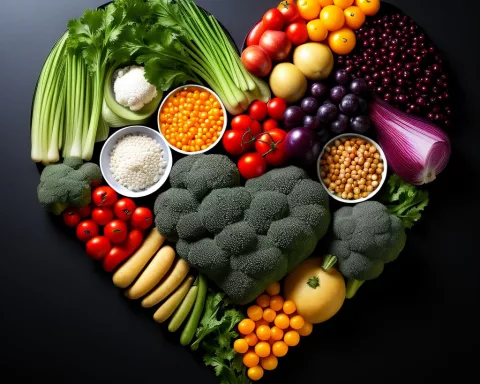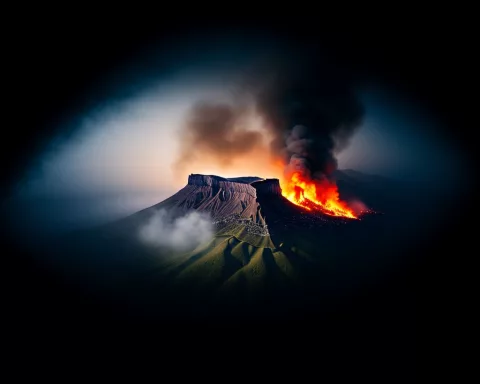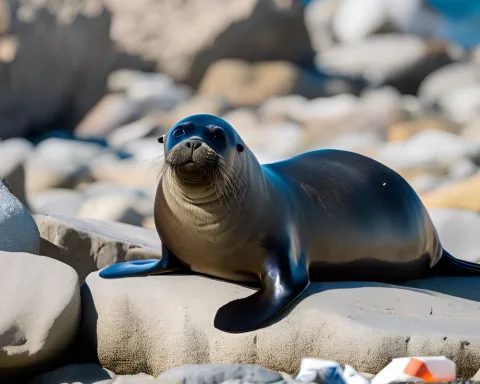Cape Town’s beautiful coastal waters are in trouble due to rising bacteria levels, especially at popular spots like Saunders’ Rocks and Camps Bay. Many people have reported getting sick after swimming, raising alarms about water safety. Activists, like Mark Jackson, are working hard to expose the problem and urge city leaders to take action. Despite some officials saying the water is safe, experts highlight serious pollution issues that need urgent fixing. The community is coming together, pushing for better testing and safer beaches to protect both people and the environment.
What is threatening Cape Town’s coastal waters?
Cape Town’s coastal waters are threatened by rising bacterial contamination, particularly at popular beaches like Saunders’ Rocks and Camps Bay. Reports of severe infections linked to polluted seawater have increased, prompting concerns over water quality and calls for more rigorous testing and public health measures.
Rising Concerns Over Bacterial Contamination
Cape Town, famed for its stunning scenery and lively culture, faces a serious threat that tarnishes its otherwise pristine reputation. Coastal waters, especially at popular beaches like Saunders’ Rocks and Camps Bay along the Atlantic Seaboard, have been reported to contain alarming levels of bacterial contamination. This problem gained significant attention following a distressing case involving a woman who contracted severe infections after swimming at Saunders’ Rocks Beach. The incident, first reported by IOL, saw the woman battling E. coli septicemia and streptococcus infections, leading to her hospitalization and a prolonged recovery period.
The gravity of this incident has sparked widespread public debate, with a surge of similar reports emerging from both locals and visitors. These accounts, largely disseminated through social media by the Atlantic Seaboard Community Forum, indicate a disturbing trend of gastrointestinal and bacterial infections linked to polluted seawater. Environmental activist Mark Jackson has taken the lead in addressing this issue by forming the ‘Bay of Sewage’ group and initiating an independent survey. His goal is to document instances of illness and exert pressure on local authorities to take meaningful action.
This recent uptick in reported illnesses builds on earlier findings by the RethinkTheStink initiative, which in late 2024 revealed extensive contamination along Cape Town’s coastline. Researchers Dr. Jo Barnes from Stellenbosch University and Professor Leslie Petrik of the University of the Western Cape conducted water tests in Table Bay that showed startling results. Their studies found that 42% of sampling dates in November and December 2024 exceeded safety limits for E. coli and Enterococci, two key indicators of water quality.
Disputes Over Water Quality Findings
Despite the alarming data, city officials have contested these findings. Deputy Mayor Eddie Andrews has been particularly vocal in disputing the studies, asserting that water quality across the city’s 30 monitored beaches remained within safe limits during the bustling festive season. City authorities have questioned the methodology used by Project Blue, a citizen-led investigation, especially its reliance on E. coli readings. This disagreement underscores a larger debate over water safety and the necessity for rigorous, transparent testing protocols.
Contrary to the city’s reassurances, experts like Dr. Cleeve Robertson, former CEO of the National Sea Rescue Institute, argue that pollution from stormwater outlets significantly compromises water quality. Robertson points to outdated sewage systems and insufficient stormwater treatment as critical issues requiring urgent attention. His comments highlight the broader systemic challenges Cape Town faces in managing its water infrastructure effectively.
The City’s latest coastal water quality report adds another layer to this complex narrative. Based on 2,400 bacterial tests conducted along Cape Town’s coastline, the report identifies several areas with poor water quality, such as Hout Bay, Bakoven, and the Camps Bay tidal pool. These poor ratings are linked to spikes in bacterial levels rather than consistent contamination, suggesting that periodic events like heavy rainfall might worsen the situation. However, the persistent presence of stormwater outlets and river mouths as sources of pollution cannot be ignored.
Calls for Enhanced Public Health Measures
Environmental advocates have also voiced their concerns, with Dr. Anthony Turton, an advisor for Project Blue, criticizing the City for lacking effective protocols to identify health risks from contamination. He argues that the absence of such measures leaves the public vulnerable, potentially unaware of the hidden dangers in seemingly idyllic waters. This criticism resonates deeply with residents and medical professionals who have called for a more coordinated and transparent response from the authorities.
Ward councillor Francine Higham has been proactive in tackling the issue. She has urged healthcare providers to promptly report any suspected cases of waterborne diseases to facilitate timely investigations. Higham emphasizes the importance of medical evidence to validate claims and avoid spreading misinformation. Her call for a systematic approach to documenting and responding to illnesses underscores the necessity for a robust public health strategy.
Amid these challenges, the dedication of the community and environmental activists offers a glimmer of hope. Their efforts to document and address water quality issues reflect a broader movement towards environmental accountability and public health advocacy. Mark Jackson’s independent survey and the RethinkTheStink initiative exemplify grassroots activism at its finest, pushing for change from the ground up.
The Role of Art and Historical Movements
Historical and artistic movements often provide a lens through which contemporary issues can be understood. The environmental activism seen in Cape Town today echoes the broader ethos of the Environmental Movement that gained momentum in the 1970s. This movement, characterized by grassroots activism, public awareness campaigns, and policy advocacy, aimed to tackle the ecological crises of its time. Similarly, today’s activists in Cape Town leverage social media, community organizing, and scientific research to combat water pollution, demonstrating the enduring relevance of these strategies.
The artistic community in Cape Town has also played a role in raising awareness about environmental issues. Local artists, drawing inspiration from the city’s natural beauty and ecological challenges, create works that spark conversation and reflection. Through their art, they contribute to a cultural dialogue about the importance of preserving Cape Town’s natural heritage.
A Call for Collective Action
Cape Town’s water quality crisis serves as a poignant reminder of the interconnectedness of environmental health and public well-being. It underscores the urgent need for robust infrastructure, transparent governance, and community engagement. As the city navigates these challenges, the collective efforts of residents, activists, researchers, and officials will be crucial in safeguarding Cape Town’s coastal waters for future generations.
The unfolding situation highlights the importance of a multi-faceted approach to environmental management, combining scientific rigor, community activism, and effective policy-making. Only through such comprehensive efforts can Cape Town hope to maintain its reputation as a jewel of natural beauty and vibrant culture while ensuring the health and safety of its inhabitants and visitors alike.
“`markdown
What is causing the threat to Cape Town’s coastal waters?
Cape Town’s coastal waters are facing a significant threat from rising bacterial contamination, particularly at popular beaches like Saunders’ Rocks and Camps Bay. Reports of severe infections related to polluted seawater have raised concerns about water quality and the need for improved testing and public health measures.
How have recent reports highlighted the dangers of swimming in these waters?
A distressing incident involving a woman who contracted severe infections after swimming at Saunders’ Rocks Beach has brought attention to the issue. She battled E. coli septicemia and streptococcus infections, leading to hospitalization and a lengthy recovery. This incident, along with similar reports emerging from locals and visitors, has sparked widespread concern about the safety of swimming in these waters.
What actions are being taken to address the pollution problem?
Activists like Mark Jackson have organized efforts, such as the ‘Bay of Sewage’ group, to document instances of illness related to water pollution and to urge local authorities to take action. Additionally, the RethinkTheStink initiative has conducted studies revealing extensive contamination along Cape Town’s coastline, prompting calls for better monitoring and action from officials.
How do city officials respond to concerns about water quality?
City officials, including Deputy Mayor Eddie Andrews, have contested findings that indicate high levels of bacteria, asserting that water quality at the city’s monitored beaches remains within safe limits. This disagreement highlights the ongoing debate over water safety and the necessity for transparent and rigorous testing protocols.
What are the environmental and public health implications of this crisis?
Experts emphasize that pollution from stormwater outlets and outdated sewage systems significantly compromises water quality. Critics argue that the lack of effective public health measures leaves residents vulnerable to health risks associated with contaminated waters. The community’s call for a more coordinated response underscores the need for a robust public health strategy.
How can the community get involved in addressing these environmental issues?
Community members can engage in activism by supporting initiatives like Mark Jackson’s independent survey and the RethinkTheStink campaign. They can also report any suspected cases of waterborne diseases to healthcare providers, as emphasized by local councillor Francine Higham, thereby helping to facilitate timely investigations and contribute to public health awareness.
“`












